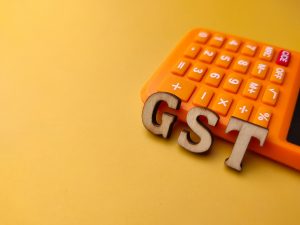
In a strategic move aimed at curbing tax evasion and broadening the revenue base, the Government of India has initiated a nationwide campaign to bring informal economic activities under the formal Goods and Services Tax (GST) regime. Official sources tell CNBC-TV18 that the Ministry of Finance has directed the Central Board of Indirect Taxes and Customs (CBIC) to activate its field formations across the country for a targeted outreach.
The new drive includes multiple directives: market analysis of cash-intensive sectors, engagement with high-density commercial hubs, and identifying potential taxpayers among food vendors, popular joints, small retailers, and service providers who remain outside the GST system, official sources said.
“The government’s objective is two-fold: bring unregistered businesses into the tax net and reduce the reliance on cash-based, unaccounted transactions,” official sources said, adding that “it is a persistent structural issue in India’s economy and continuous efforts are needed to correct this.”
“More Registrations, More Oversight”
Further, official sources say that this initiative is not designed to be intrusive but will emphasise communication and trust-building with small businesses. “More registrations mean more oversight, but also better compliance, smoother trade, and potentially lower rates for all in the future,” a senior official told CNBC-TV18, speaking on condition of anonymity.
The government is working on the logic that a broader tax base reduces the per capita tax burden, enabling room for rationalising rates over time.
Record GST Collections Driven by New Taxpayers
India recorded its highest-ever monthly Goods and Services Tax (GST) collections in April 2025, with revenues reaching ₹2.36 lakh crore—a year-on-year growth of 12.6%.
April 2025 saw record-breaking GST collections, buoyed significantly by new taxpayer additions. According to the latest official figures, over 2.5 million new GST registrations were recorded in FY25, pushing the total to 15 million registered taxpayers.
Domestic GST collections rose by over 9%, pointing to continued resilience in consumption and production activity. This trend aligns with broader signs of recovery in both rural and urban demand.
This expansion in the taxpayer base has had a visible impact on state-level collections and compliance dynamics.
An expanding tax base also played a key role. More than 2.5 million new GST registrations were recorded in FY25, bringing the total to 15 million. Uttar Pradesh, Maharashtra, Gujarat, Karnataka, and Tamil Nadu now each account for over a million registered taxpayers each. Maharashtra leads in absolute collections, while Uttar Pradesh has the highest number of registrations.
Uttar Pradesh leads in terms of total GST registrations, now crossing the 1 million mark. Maharashtra remains the top contributor to overall GST collections, benefiting from a robust mix of industrial and service-sector taxpayers. Gujarat, Karnataka, and Tamil Nadu have also emerged as key GST states with over a million registered entities each.
The Indian economy has long struggled with a large informal sector, estimated to account for nearly 45-50% of total employment and a significant share of economic output. Experts believe the government’s new initiative, if implemented effectively, could drive structural gains.
“Formalisation of the informal economy is critical not just for tax collection, but for improving productivity, access to credit, and social security for workers. Since the GST net provides a unique digital trail, this can be a game-changer for long-term policy planning. Also, the reason for the highest ever GST revenues is two-fold — growth in the economy and better compliance of taxpayers,” official sources added.
Moreover, the increase in formal business activity has the potential to attract more foreign direct investment (FDI), improve ease of doing business metrics, and boost investor confidence in India’s economic governance.
Meanwhile, CNBC-TV18 reached out to the government, and an email query to the Ministry of Finance remained unanswered.
However, the direction is clear — India is accelerating its push to formalise the economy, and GST registration is becoming a key instrument in that strategy.
Source: CNBC TV-18


